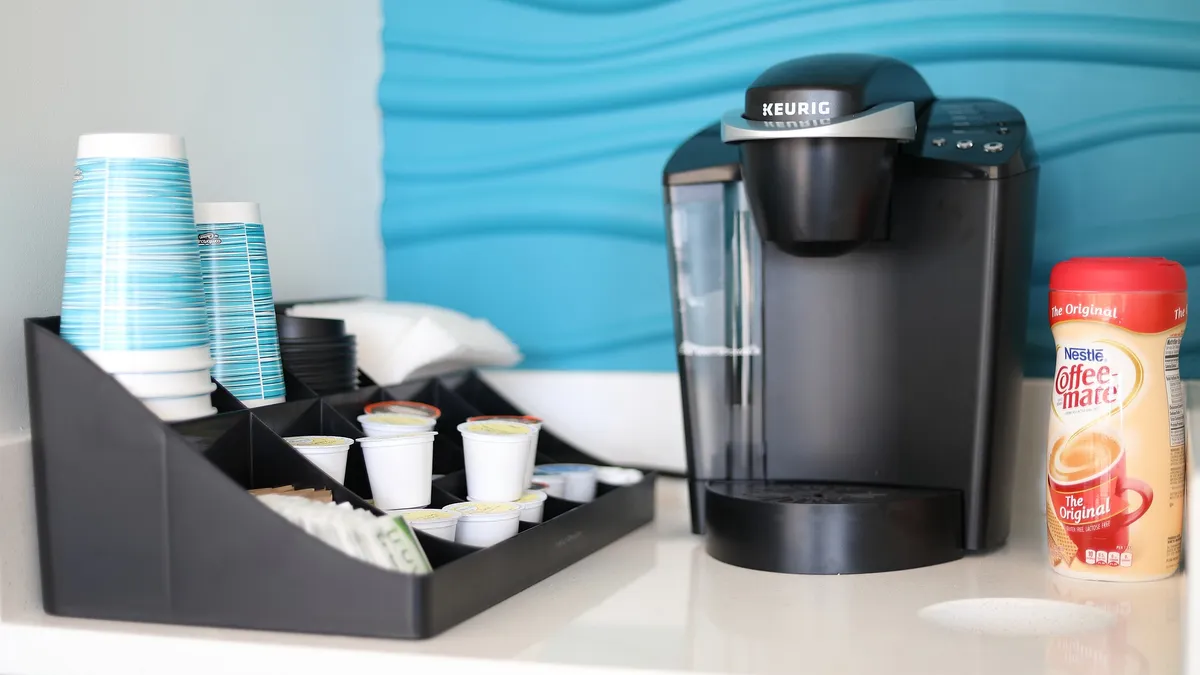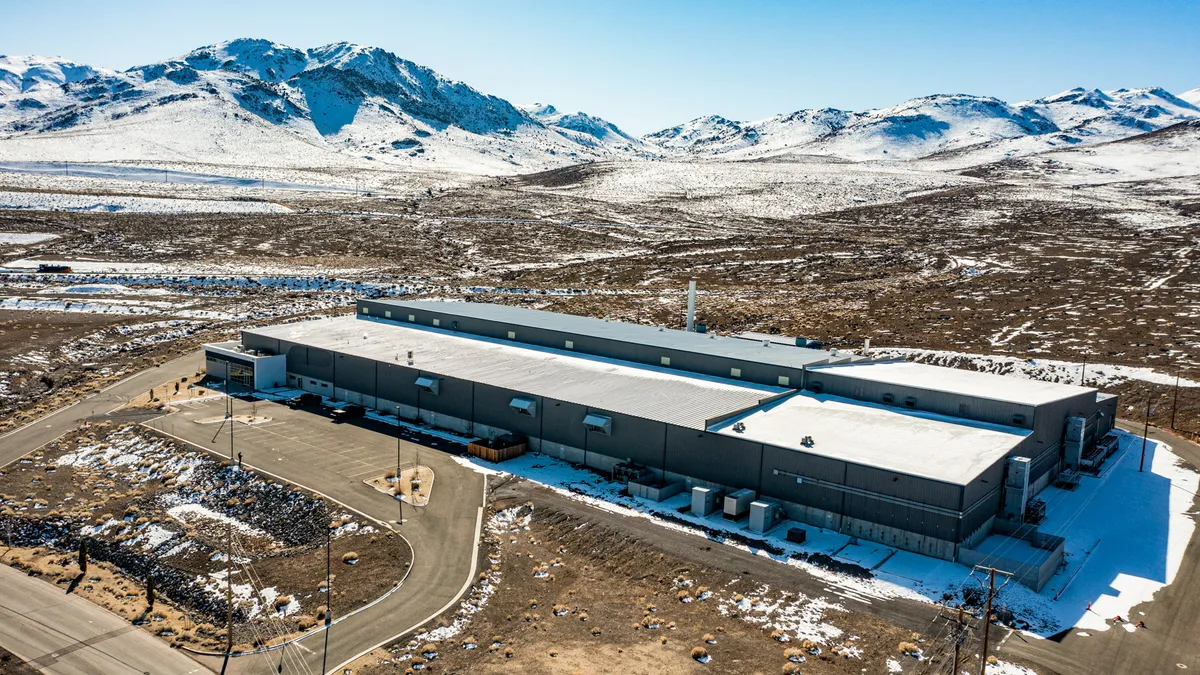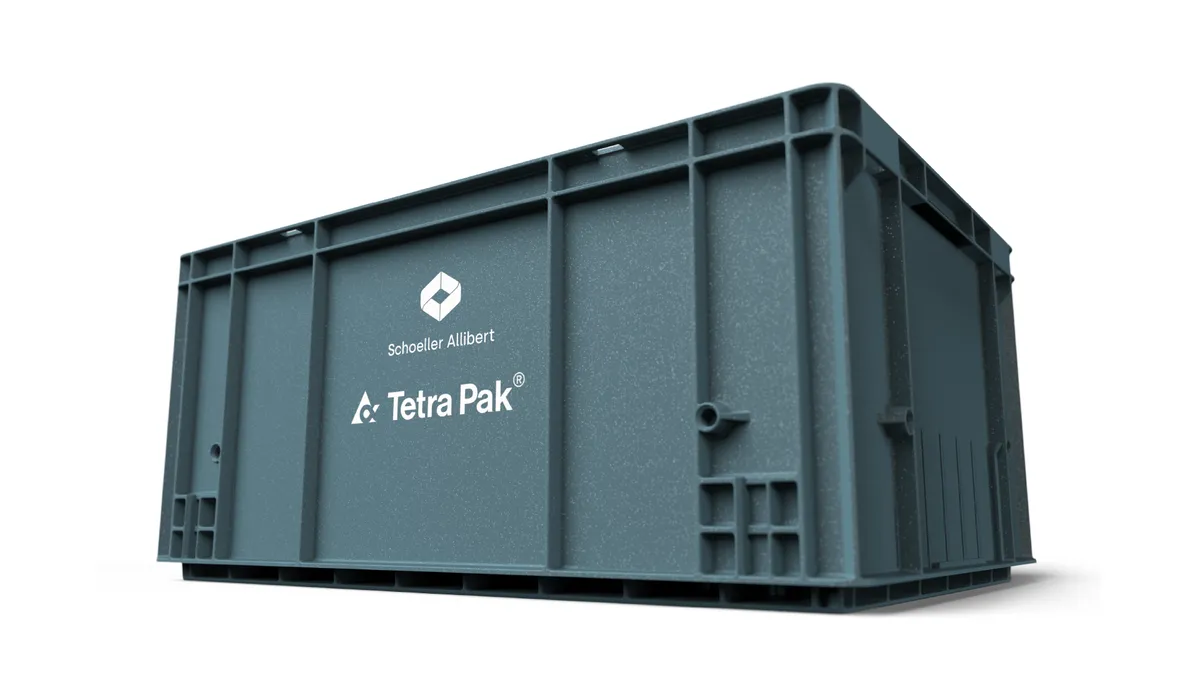A federal judge in California recently ruled that a class action lawsuit against Keurig Green Mountain Inc. — one with interesting implications for recyclability claims about new product streams — can move forward.
The lawsuit was proposed by a California consumer who says the company (now Keurig Dr Pepper) made false claims about its coffee pods' recyclability, namely that their size, composition and lack of an end market renders them unrecyclable. The suit points out that while the pods are made of polypropylene — a plastic (#5) accepted for recycling in about 61% of communities nationwide — most domestic MRFs aren't capable of capturing such small, light materials from the recycling stream.
According to the lawsuit, Keurig adds to the problem by telling consumers they need not remove the pods' paper filters before recycling. This creates a source of contamination, as it does for numerous other products made from multiple materials that are recyclable only when segregated, including paper envelopes lined with bubble wrap and aluminum cans with plastic shrink wrap sleeves.
Keurig had hoped the lawsuit would be dismissed on the grounds that advertising and labels for the coffee pods encourage consumers to "check locally" about whether the pods are recyclable. It claimed consumers would understand the items aren't recyclable in all markets, despite being labeled as recyclable. The judge, however, found this defense to be lacking because consumers allege the pods aren't recyclable through any MRF in the country, so telling them to "check locally" doesn't make Keurig's recyclability claims true.
"[C]ommon sense would not so clearly lead a person to believe that a package labeled 'recyclable' is not recyclable anywhere," U.S. District Judge Haywood Gilliam wrote in the ruling. "[A]lthough Keurig argues that its labeling is sufficient under the Green Guides... the complaint alleges facts that indicate the opposite."
The Green Guides are the Federal Trade Commission's advice on the types of marketing claims manufacturers can make about their products' recyclability. The goal is to prevent manufacturers from making deceptive or overtly false claims. A key part of the Green Guides is a section commonly referred to as the "60% access rule" – companies can make unqualified claims about a product's recyclability only when a substantial majority (60%) of customers or communities where the item is sold have access to recycling facilities accepting the material. In other words, while a product may technically be recyclable, it won't necessarily be considered as such in regions without adequate processing or sorting infrastructure.
Concerns over coffee pods' contribution to the waste stream have circulated for years following the product's growing mainstream popularity. Even the pods' inventor weighed in on the issue in 2015, saying he regretted inventing them due to their lack of recyclability.
But in the years since, manufacturers have made concerted efforts to create products that can be diverted from disposal. For example, Nespresso periodically expands its coffee pod mail-back recycling program. It partnered with Sims Municipal Recycling and New York's Department of Sanitation earlier this year to devise better strategies for recovering single-serve pods from the curbside recycling stream.
Two years ago, Keurig Green Mountain announced all of its Canada-made coffee pods would be recyclable by the end of 2018. The company released updated sustainability goals last month, including using 100% recyclable or compostable packaging and sending no waste to landfills by 2025. It also reiterated its previous goal of making all coffee pods recyclable by 2020.
Keurig Green Mountain was among the Association of Plastic Recyclers' (APR) initial group of Recycling Demand Champions, a campaign to expand market demand for recycled resins and improve plastic recycling in North America. According to APR, the two entities have "worked extensively" with one another to transition to a recyclable coffee pod container, and Keurig faced the same technological challenges as other companies that manufacture small, light, difficult-to-sort containers.
"Their efforts have led to the creation of technology and protocols that will be used by all brand owners that will allow more containers to be captured from the waste stream, thereby increasing the amount of material available for recycling while reducing contamination," APR President and CEO Steve Alexander told Waste Dive in a statment. "There have been few, if any, companies who have undertaken the vast array of efforts that Keurig has to address the sustainability of their products."
Keurig did not respond to a request for comment about the lawsuit prior to this story's publication.
In 2017, a company representative spoke at an event hosted by the Institute of Scrap Recycling Industries (ISRI) MRF Council about the company's strategy to make the pods recyclable by 2020. Some of ISRI's core work centers on creating products with end-of-life recycling principles in mind, and through its Design for Recycling program presents an annual award to a company that embodies these principles.
A Keurig representative also spoke about coffee pod MRF tests during a session at WasteExpo 2017. The company tracked the pods at facilities using RFID chips and determined 90% of them made it through the container line. That study prompted the Sustainable Packaging Coalition to name Keurig Green Mountain a 2017 Innovator Award Winner for Breakthrough Process, citing factors such as full traceability, non-disruptive testing and in-depth data capture.
The class action lawsuit underscores the difficulty manufacturers face with making accurate recyclability claims. Recycling is a regional practice, and materials that are accepted in one market can be rejected in others. While efforts to standardize national messaging are gaining traction, an increasingly complex material stream will continue to present recycling challenges.























